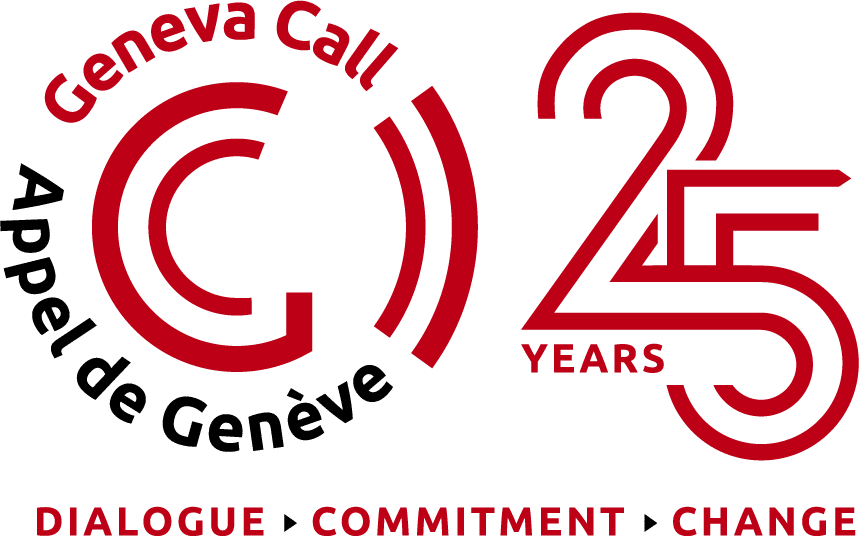“Culture under fire”: Geneva Call launches pioneering new study on armed non-State actors and the protection of cultural heritage
23 October 2018
Geneva Call is delighted to publish a new report entitled “Culture under fire: armed non-State actors and cultural heritage in wartime”. The report will be officially launched at an event to be held at the Embassy of Switzerland in Washington D.C. on October 25 2018, featuring a high-level panel with the participation of Yves Daccord, the Director-General of the International Committee of the Red Cross and Corine Wegener, the Director of the Smithsonian Cultural Rescue Initiative.
“Many important cultural heritage sites are located in areas controlled by armed non-State actors (ANSAs): Engaging with them is therefore essential to enhance the protection of cultural heritage.”
Pascal Bongard, Head of the Policy and Legal Unit, who coordinated the study
This report presents the findings of a two-year long study conducted by Geneva Call on cultural heritage and ANSAs. It represents the most comprehensive research available on this topic to date. The report centres around three case studies—Iraq, Mali and Syria— and is based on information obtained through desk and field research, as well as interviews with leading specialized organizations. The study also incorporates the perspectives of ten selected ANSAs operating in these three countries and explores the reasons why certain ANSAs are willing to respect cultural heritage and others are not.

Cultural heritage is vital to the identity of individuals, communities and entire nations. Much more than bricks and mortar or paper and canvas, ancient statues, manuscripts and works of art provide us with a sense of cultural cohesion and pride. Yet, too often, cultural heritage comes under attack during situations of armed conflict. Destroying cultural heritage is often an attempt to control the identity of a population, erase diversity or remove the links communities have with their past. International humanitarian law (IHL) obliges all parties to an armed conflict to protect and respect cultural property.
The study identifies two different attitudes of ANSAs towards cultural heritage. The first category consists of ANSAs that, as a matter of policy or method of warfare, engage in deliberate attacks and plunder of cultural heritage. The second consists of ANSAs that do not seek to intentionally destroy cultural heritage but, rather tend to respect it even though their military tactics and ignorance of legal standards may expose it to incidental, collateral damage.
A notorious example of the first attitude is the Islamic State group, which has, since 2014, intentionally damaged or destroyed religious buildings, historical monuments, statues and archaeological sites in the territory under its control between Iraq and Syria. There are, however, examples of positive behaviour on the part of ANSAs, with some even adopting concrete measures to respect and safeguard cultural heritage. Measures include adopting regulations that prohibit the destruction and trafficking of antiquities, storing cultural artefacts in safe places, and posting guards to protect shrines and archaeological sites from attack and looting.

Geneva Call’s report makes the case for an engagement-based approach to the protection of cultural heritage arguing that, given the limitations of the international legal framework when it comes to the protection of cultural heritage, complementary approaches, especially direct engagement with ANSAs, are necessary in today’s armed conflicts. The report concludes by offering some recommendations and ways forward to enhance the protection of cultural heritage in non-international armed conflicts.
“Despite the challenges involved in engaging in humanitarian dialogue with ANSAs, many of them have expressed a desire to learn more about international rules protecting cultural heritage and cooperate with specialized organizations.”
Pascal Bongard, Head of the Policy and Legal Unit, who coordinated the study
To read the full report please click here.
For any queries please contact Christopher Fitzsimons, Institutional Communication Officer at cfitzsimons@genevacall.org
